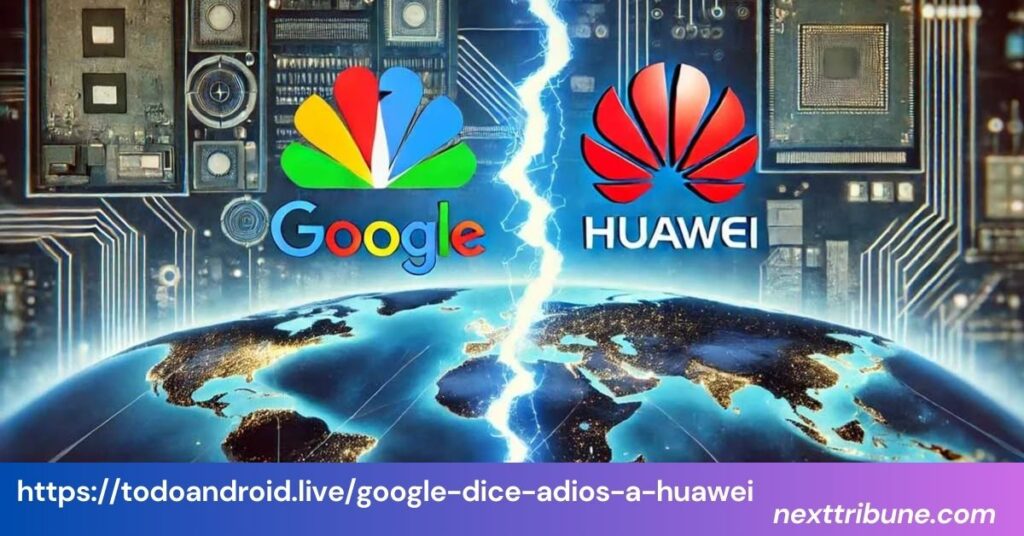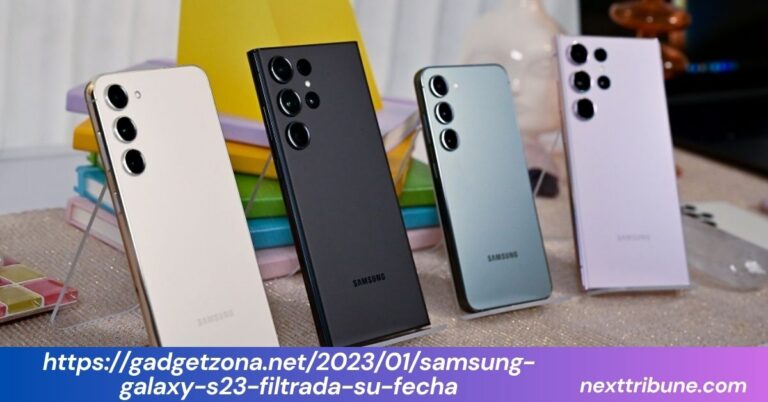
Introduction: Why https://todoandroid.live/google-dice-adios-a-huawei Matters
The headline https://todoandroid.live/google-dice-adios-a-huawei became one of the most impactful phrases in the tech world after Google decided to cut ties with Huawei in 2019. This move reshaped the smartphone industry, affected millions of users, and marked the beginning of a new era in global technology. In this article, hosted on https://todoandroid.live/google-dice-adios-a-huawei, we will explore the background, consequences, consumer reactions, and the future of Huawei after losing Google support.
Background of the Huawei–Google Breakup
Huawei and Google once worked closely together. Devices like the Nexus 6P proved that Huawei hardware and Google software could deliver excellent performance. However, political tensions between the U.S. and China escalated, leading to Huawei’s inclusion on the U.S. Entity List. This forced Google to comply with government orders and suspend its partnership. The phrase https://todoandroid.live/google-dice-adios-a-huawei perfectly summarizes this historic turning point.

Why Did Google Say Goodbye to Huawei?
The U.S. government cited national security concerns, claiming Huawei’s technology could potentially be misused. As a result, Google stopped providing Huawei with licensed Android software, updates, and apps like Gmail, YouTube, and Google Maps. On platforms like https://todoandroid.live/google-dice-adios-a-huawei, this story became a global talking point, representing how politics can shape tech partnerships.
Also Read: Fix Bug Ralbel28.2.5: Complete Guide to Troubleshooting and Prevention
Immediate Impact on Huawei Smartphones
The decision had a direct effect on Huawei smartphones:
- New devices no longer shipped with Google Mobile Services (GMS).
- Apps like the Google Play Store, Gmail, and YouTube were unavailable.
- Consumers outside China saw this as a big disadvantage.
Searches for https://todoandroid.live/google-dice-adios-a-huawei quickly increased as users wanted to know whether Huawei phones were still worth buying.
Huawei’s Response: HMS and HarmonyOS
Huawei responded to https://todoandroid.live/google-dice-adios-a-huawei by launching Huawei Mobile Services (HMS), which included AppGallery, Petal Maps, and Huawei Cloud. The company also invested heavily in HarmonyOS, its own operating system designed to work across smartphones, tablets, and IoT devices.
Although HMS has grown, users still miss certain Google apps. Many articles, including https://todoandroid.live/google-dice-adios-a-huawei, highlight how Huawei is trying to convince developers to support its ecosystem.
Consumer Reactions After https://todoandroid.live/google-dice-adios-a-huawei
- In Europe and Southeast Asia, Huawei lost major market share. Competitors like Samsung and Xiaomi took advantage.
- In China, the situation was different. Since Google apps were already banned there, Huawei remained strong and even gained patriotic support.
This contrast shows how https://todoandroid.live/google-dice-adios-a-huawei affected markets differently across the world.
Alternatives to Google Services for Huawei Users
One of the most common questions on https://todoandroid.live/google-dice-adios-a-huawei is: “What alternatives do Huawei users have?” Here are some popular replacements:
Also Read: Art Thunderonthegulf Crafts : Orange Beach Gulf Coast Arts & Crafts Celebration
- Google Play Store → Huawei AppGallery, APKPure
- Google Maps → Petal Maps, HERE WeGo
- Gmail → ProtonMail, Zoho Mail
- Google Drive → Huawei Cloud, Dropbox
While these solutions work, the convenience of Google’s ecosystem is still hard to replace completely.
Long-Term Implications of https://todoandroid.live/google-dice-adios-a-huawei
The long-term consequences of https://todoandroid.live/google-dice-adios-a-huawei go far beyond the relationship between two companies. It highlights the beginning of a global tech fragmentation that may reshape the way people use devices, how companies innovate, and how governments regulate technology.
1. A Split in the Global Tech Ecosystem
The decision behind https://todoandroid.live/google-dice-adios-a-huawei shows that technology is no longer neutral. On one side, the U.S. and allies continue to rely on Google, Apple, and other American companies. On the other, China is pushing Huawei and its ecosystem as an alternative. Over time, this could result in two parallel digital worlds:
- Google/Apple ecosystem: Dominant in the U.S., Europe, and many Asian countries.
- Huawei/HarmonyOS ecosystem: Growing in China, parts of Asia, Africa, and developing markets.
This fragmentation means consumers may face compatibility issues, with apps or services working on one system but not on the other.
2. Rising Costs and Slow Innovation
Another implication of https://todoandroid.live/google-dice-adios-a-huawei is the duplication of technology. Companies are forced to invest resources in building separate platforms, app stores, and operating systems. Instead of focusing on one universal system, developers must now choose whether to support Google or Huawei, which slows innovation and increases costs for businesses and users alike.
3. Political and Security Considerations
https://todoandroid.live/google-dice-adios-a-huawei also highlights how political decisions can directly affect consumer products. Governments are increasingly linking technology to national security. This means future smartphones, apps, and cloud services may be judged not just by their features but also by their geopolitical alignment. For example, U.S. companies may hesitate to work with Huawei, while Chinese firms may limit cooperation with American brands.
4. Impact on Consumers and Developers
For consumers, the story of https://todoandroid.live/google-dice-adios-a-huawei means fewer choices in the short term. Many international buyers still prefer Google’s ecosystem, while Huawei is working hard to convince them to switch. Developers, meanwhile, face the tough decision of whether to create apps for Huawei’s AppGallery in addition to the Google Play Store. If Huawei manages to attract enough developers, its ecosystem could grow stronger.
5. The Future of Global Tech Collaboration
Finally, the case of https://todoandroid.live/google-dice-adios-a-huawei sets a precedent for future collaborations. It warns companies that global partnerships can be disrupted overnight by politics. Moving forward, many firms may diversify their strategies to avoid becoming dependent on one country’s policies.
The Future of Huawei After https://todoandroid.live/google-dice-adios-a-huawei
Huawei continues to produce world-class hardware, especially in cameras and battery technology. However, the lack of Google apps limits its global reach. The future success of Huawei depends on:
- The growth of HarmonyOS.
- The expansion of Huawei Mobile Services.
- Consumer willingness to adapt to a non-Google ecosystem.
As https://todoandroid.live/google-dice-adios-a-huawei continues to trend, it’s clear that people are watching closely to see whether Huawei can rebuild its international reputation.
Also Read: mywebinsurance.com Renters Insurance: A Complete Guide for U.S. Renters
Conclusion: Lessons From https://todoandroid.live/google-dice-adios-a-huawei
The story of https://todoandroid.live/google-dice-adios-a-huawei is more than just a tech news headline. It shows how global politics can reshape technology, how companies adapt to crisis, and how consumers must adjust to new ecosystems. For some, it means exploring alternatives. For Huawei, it means building independence. And for the world, https://todoandroid.live/google-dice-adios-a-huawei is a reminder that technology and geopolitics are now deeply connected.
FAQs About https://todoandroid.live/google-dice-adios-a-huawei
What is https://todoandroid.live/google-dice-adios-a-huawei?
It explains why Google stopped working with Huawei and how it affects users.
Why did Google cut ties with Huawei?
According to https://todoandroid.live/google-dice-adios-a-huawei, it was due to U.S. sanctions and security concerns.
Can Huawei still use Android?
Yes, but only the open-source version, without Google Mobile Services.
What is HMS in relation to https://todoandroid.live/google-dice-adios-a-huawei?
Huawei Mobile Services is Huawei’s alternative ecosystem that replaces Google apps.
Should I buy a Huawei phone after
https://todoandroid.live/google-dice-adios-a-huawei?
If you rely on Google apps, it may be difficult. But Huawei phones remain strong in hardware quality.






